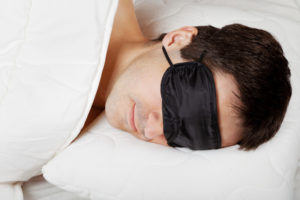Tips for night shift workers
Several extensive studies have given working the night shift a bad name over the last fifteen years.
Working the shift seems to promote lousy health habits. Night shift workers smoke more. They weigh more. They’re three times more likely to get into traffic accidents.
These effects pool together. Altogether they lead to a greater chance of poor outcomes like a heart attack—and more. For example, working night shift might increase a woman’s chance of developing breast cancer.
Sure, many of the studies can be criticized, but it’s clear working the night shift can have a deleterious effect on many people. If your health is your most important possession, what can you gain by working all night? Is working the graveyard shift simply bad for you?
Money, you say?
Night-shift workers make a bonus in many places. Whatever bonus you make for working all night—a couple of bucks, 10 percent of base pay, or something else—isn’t worth it if it ends up giving you cancer or having a stroke.
Ah, but if you acknowledge these inclinations and work around them, you can have a promising future on the night shift! No after-work car accidents because you’re too tired to drive for you!
Have a bad car accident or develop a health condition from working the shift, and you’ll give up all the extra pay you get for working the off hours.
Working the night shift is a skill
The key to working nights is to be aware of the tendencies you adopt while working them. Then, offset the unhealthy ones.
Miss out on sleep because you’re scrolling through your social media on your phone? Cut it out. Read a printed paper book to wind down.
Take up smoking to stay awake? Try going for a walk instead.
Try to do what you can to sleep consecutively, soon enough, and long enough.
If you consider it a skill, you’ll build what you notice works for you into a routine. Once you have a good practice in place, you’ll enjoy the perks of the shift.
Perks include extra money, less work, avoiding the fishbowl of the day shift (management is there, and they can watch you like you’re in a fishbowl), and a feeling of freedom.
Be sure to include the drawbacks in your calculations. Some disadvantages might include being expected to come in for meetings on the day shift, being passed over for promotion, and other factors that might depend on your location, business, and career.
The disadvantages and advantages are situation-dependent. Take stock of the ones unique to your situation.
Best products for night shift workers
Skills often need tools and so it goes for successful night shift workers. When you go to sleep, it helps to wear earplugs and a sleep mask. For some, the earplugs will bother them. They make them feel congested. Try to get used to them or find a place that will stay quiet when you sleep.

Avoid ear infections when using ear plugs by keeping them clean, either by rubbing them with isopropyl alcohol or with soap and water. Be sure to let the cleaned ear plug dry out. When cleaned and taken care of, the same disposable earplugs can literally be reused for years.
Block any natural light forcing its way into your sleep chamber. Darken your room with heavy curtains.
You don’t need both the blackout curtains and the sleep mask. If you have to change where you sleep sometimes, the sleep mask is the better option. If you can’t stand having anything on your eyes, go with the blackout curtains.
After a long period of working nights, you might find melatonin helps you sleep at night on your days off. That recovery time is big-time important.
Other essential points
Timing and the night shift
Don’t schedule anything for the middle of the day when you’re sleeping. If you have to have an appointment on a day you’re working, schedule it for later in the afternoon. Getting up will feel more like getting up early. While that’s bad enough, it’s better than being like a night sleeper who gets up at 2 a.m. and drives around.
Put it like that, and it sounds absurd. Yet people who say things like “I can’t work nights” are always doing things like that, though in some cases, they don’t have a choice for whatever reason.
Work your shifts in a row.
Read this over again and as often, as many times as it takes for it to sink in. It’s important. One place I worked scheduled me to be on one shift, off the day, the shift after, off the next, then on. Such a schedule is tough to recover from, and you aren’t fully adapting to either rhythm. If your job insists on having you keep a schedule like that, get another job. Your health is more important than any job. Protect your health above all. You will not make any money when you get sick (and you will from a schedule like that if you carry it on for too long).
Sunshine, exercise, and the night shift
Get some sunshine when you wake up in the afternoon. This is the single most valuable piece of advice in this blog post. You could do something as simple as going outside and doing some chores in the sun for a few minutes, even if it’s in the shade. The sun helps us produce Vitamin D. It also helps us have a good mood. For most people, the important thing seems to be seeing the sun. Exercise is excellent at this time of the day for night shift workers. Exercise doesn’t have to be rigorous to be helpful, though, for some people, it is.
Don’t exercise after getting home in the morning. Exercise is stimulating. Then the shower you take after the exercise provides more stimulation. If you must exercise to get in a restful frame of mind, make it something like tai chi or yoga.
Avoid prolonged exposure to bright lights while working all night. Bright lights will throw off your circadian rhythm.
Eating and the night shift
Eat healthfully. This means things with vegetables in them, not fast food, and not junk. This is always important, especially when you work nights. When people don’t eat healthfully and work nights, they tend to put on weight.
Don’t eat a big meal and then try to go to sleep. Over time you might develop a tendency to urp up and then reswallow your food. This will ruin your pyloric sphincter, and you may need surgery to fix it later. Eat lightly before going to bed, just enough to keep you from waking up too early or not being able to sleep.
Roommates, family, and the night shift
Always respect your need to sleep. Make sure others respect your need to sleep too.
Acknowledge your vulnerability as a day sleeper when you’re trying to work the night shift and stay healthy. You’ve got people who’ll knock on your door when they know you’re inside. You’ve got domestic partners who’ll be cruel to you, not let you get your sleep when you’re fighting.
You’re vulnerable to the sunshine streaming into your window. You’ve got telemarketers, landlords, and bill collectors who’ll keep calling throughout the day if you get behind on your payments. Adding to all of that, you’ve got businesses only open during the day. It can be tough.
Silence your phone when you sleep. You need to string together as much uninterrupted sleep as you can.
Your mind and the night shift
Dealing with a racing mind can be extra hard during the daytime. Many activities can help, but the key is to select an activity or train of thought that will give you a sense of peace and not lead to simulation.
It’s not natural to have to sleep during the day, all day. You have to make a deal with yourself that you’re not going to get out of bed during the time you’re supposed to be asleep. Calculate the minimum number of hours you need to sleep and stick to getting that. Remember that you want to wake up feeling fresh and rested.
Watch your caffeine intake! Don’t immediately resort to taking sleeping aids. If you’re going to go to sleep at 8 a.m., consider that you might want to stop drinking coffee after 3 a.m.
Your sleep habits at the end of the work week and night shift
When you’re coming off of your string of shifts, wake up at your regular time in the afternoon. Go to sleep at the hour you want to go to bed on your nights off—and be consistent. Try taking less than 1 mg of melatonin about 30 minutes before bedtime. You’ll usually find it in doses greater than 1 mg, so don’t hesitate to cut pills in half to use less.
It helps to be okay with waking up early the next morning. You might need a nap in the afternoon. If that’s the case, don’t sleep too long.
Some people can experience the effects of living in one time zone but living like they’re in a completely different one. This is called social jet lag. Be familiar with this concept because it might help you adjust to other people’s demands of you when you work nights.
Even with these procedures and daytime sleep tools, you might still find that the night shift is not for you. Some people in some places find the night shift boring. You need to find a place that matches your goals. Night shifts can be crazy in some places; in others, they can be a long stretch of practically nothing where the workers are paid to sleep for hours at a time. Whatever the situation, these tips can help you successfully sleep during the day.
What do you find helps you work night shifts? Comment below.
If you found this article useful, be sure to share.
For further reading:
Bandana blindfolds for sleeping (aka going to bed hostage style!)
Understand a dream about quitting
Acid reflux? How to win at eating and sleeping
James Cobb, RN, MSN, is an emergency department nurse and the founder of the Dream Recovery System. He aims to provide his readers with simple, actionable ways to improve their health and maximize their quality of life.
Some links on this page are affiliate links. If you click on one of these links and make a purchase, we very well might receive a commission. This has no effect on our opinions.
